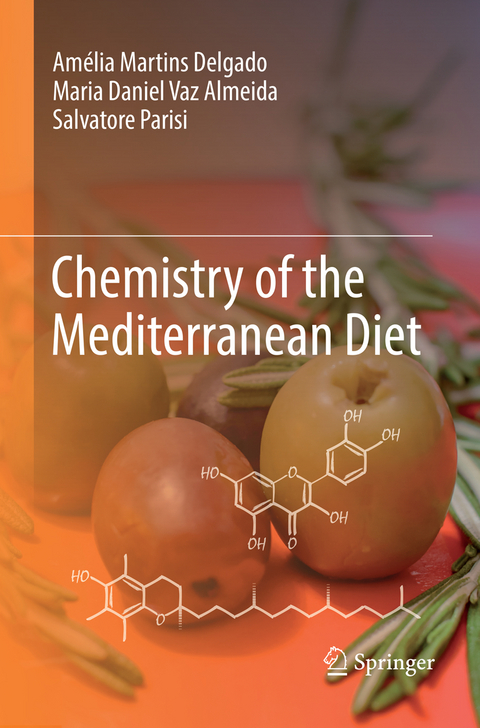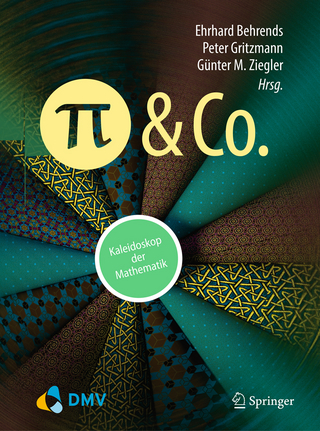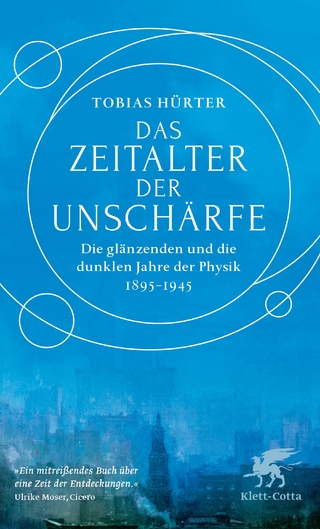
Chemistry of the Mediterranean Diet
Springer International Publishing (Verlag)
978-3-319-80554-2 (ISBN)
The Mediterranean diet, designated as an 'Intangible Cultural Heritage of Humanity', has a reputation of being particularly beneficial to your health and for reducing the risk of diseases like cardiovascular disorders. Read this book to find out which chemical compounds contribute to these health benefits. Typical ingredients of the Mediterranean diet include olive oils, fresh and dried vegetables and fruits, cereals, moderate amounts of fish, dairy and meat, and various condiments and spices, typically accompanied by wine and infusions. The book will introduce you to the most typical ingredients, providing information about their use in Mediterranean cuisine and explaining more about the healthy substances they contain - from their chemistry to their occurrence in the foods and the resulting intake. Summarizing important facts and data from available scientific literature, this book even gives recommendations for guidelines to a healthy diet - guidelines that are becoming more and more important. In recent years, it has been observed that nutritional habits in the geographical area have started to deviate further and further away from the typical Mediterranean nutritional pattern, representing an alarming trend that this book also critically addresses, since the WHO has reported increases in obesity and malnutrition in the Mediterranean area.
Illustrations of important chemical compound structures, as well as appetizing photos of select ingredients for Mediterranean dishes, accompany the text.
Amelia Martins Delgado is a Food Engineer by education, with an MSc from University of Lisbon and a PhD from Universidade Nova de Lisboa. Amélia is a specialist in food safety and nutraceuticals, with experience in industry and in academia, teaching mostly graduated students and training professionals. Although she loves to travel and to taste all kinds of traditional foods, Amélia is an educated enthusiast of the Mediterranean diet. She retrieves and keeps old recipes, particularly from her own family. She thinks any convivial meal should start in the kitchen, where friends are welcomed to start chatting while cooking. Maria Daniel Vaz de Almeida holds a BSc in Nutritional Sciences (Porto University, 1979) and a PhD in Nutrition (King's College London, 1989). She is Professor of Community Nutrition since 2004 at FCNAUP. Her professional career has mostly evolved within the academic field with strong links to the community. Determinants of food choice, the richness and variety of food patterns around the globe, and the influence of eating habits in human lives are her main interests of study. As science and technology advance, more positive aspects of the Mediterranean Diet are unveiled, therefore contributing to the validation of the knowledge and wisdom transmitted through cultural traditions. This is why this Portuguese nutritionist is passionate for the concept of the Mediterranean Diet, a paradigm of human adaptation to its environment, deeply rooted in history and culture. Salvatore Parisi is a chemist and food scientist by education, working as a consultant for the food industry, with specialization in food hygiene and food packaging. He obtained his MSc from the University of Palermo and PhD from the University of Messina, Italy. Salvatore serves as series editor for the SpringerBriefs in Molecular Science: Chemistry of Foods.As native Sicilian, he grew up with the Mediterranean Cuisine and way of life. His specialties are the preparation of 'pasta con le sarde' and 'caponata ' (a cooked salad with eggplants and other ingredients). He particularly enjoys preparing the Sicilian couscous of Trapani: an excellent dish when obtained with fine fish such as moray eels, but handle with extreme care! As a professional food scientist, he knows very well about the beneficial health effects of these 'little sins'. Salvatore particularly likes moray eels - although the fish also likes to bite him... The Illustrator: Tobias Wassermann is a chemist by education. He obtained his PhD in Physical Chemistry from the Universities in Göttingen (Germany) and Marseille (France). After postdoctoral research in Switzerland (Lausanne), he joined Springer to become an editor for chemistry (incl. food chemistry). He is a hobby photographer and great fan of the Mediterranean Diet and Cuisine. His specialties are varieties of pasta - of course inspired by Italian style. Bringing these both worlds together, he enjoys taking appetizing photos of Mediterranean Food - even if it can sometimes be hard to continue photographing and to resist eating the delicious foods in front of the camera...
Part I - Introduction to the Mediterranean Diet: The Mediterranean Diet: What is it?.- Food and nutrient features of the Mediterranean Diet.- Adherence to the Mediterranean Diet.- Part II - Facts on the Composition of "Mediterranean Foods": Olive Oil and Table Olives.- Vegetable Foods.- Milk and Dairy Products.- Fish, Meat and Other Animal Protein Sources.- Infusions and Wines.- Part III - The Mediterranean Diet: Conclusions: Concluding Remarks.
| Erscheinungsdatum | 05.03.2022 |
|---|---|
| Illustrationen | Tobias Wassermann |
| Mitarbeit |
Cover Design: Tobias Wassermann |
| Zusatzinfo | XIII, 259 p. 53 illus., 39 illus. in color. |
| Verlagsort | Cham |
| Sprache | englisch |
| Maße | 155 x 235 mm |
| Gewicht | 575 g |
| Themenwelt | Sachbuch/Ratgeber ► Natur / Technik ► Naturwissenschaft |
| Naturwissenschaften ► Chemie | |
| Schlagworte | Adverse health effects • Beneficial Health Effects of Mediterranean Food • Chemistry of Mediterranean Nutrition • Excess Salt and Fat Intake • Health-beneficial Food Compounds • Mediterranean Diet • Mediterranean Nutritional Pattern • Mozzarella, tomatoes and basil • Olives tocopherol • Polyphenols • Vitamin E intake |
| ISBN-10 | 3-319-80554-1 / 3319805541 |
| ISBN-13 | 978-3-319-80554-2 / 9783319805542 |
| Zustand | Neuware |
| Haben Sie eine Frage zum Produkt? |
aus dem Bereich


